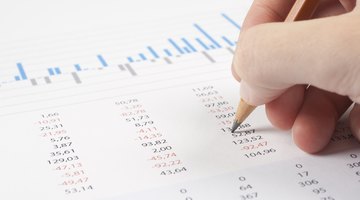The world of finance is essentially a world of uncertainty. Therefore, a wide variety of financial professionals, such as portfolio analysts, traders and financial strategists rely on probabilistic models. Economists and economic policymakers use probability models to be prepared for various scenarios. Since businesses operate within this uncertain economic landscape, top managers, business consultants and analysts within corporations rely on probabilities. Customer Relationship Management or CRM analysts, in particular, use probability models intensively. Chief Financial Officers and loan officers rely on probability analysis to estimate payments, defaults and the resulting financial condition of the company in the future.
Technical Jobs
More technical occupations, such as engineering, also require probability analysis. Engineers must calculate the probability of such things as a heavy gust of wind or a car's front suspension hitting a pothole on an average day. Computer programmers sharpen their products by using statistics. Biologists and medical experts use probabilities to better understand sophisticated mechanisms within the human body and to develop drugs. Physicists deal with uncertainty as they delve into the realm of sub-atomic particles and model these interactions by using probability models. Mathematicians an statisticians learn, perfect and teach probability theorems, as probability is part of both of these academic fields.
Related Articles
References
Writer Bio
Hunkar Ozyasar is the former high-yield bond strategist for Deutsche Bank. He has been quoted in publications including "Financial Times" and the "Wall Street Journal." His book, "When Time Management Fails," is published in 12 countries while Ozyasar’s finance articles are featured on Nikkei, Japan’s premier financial news service. He holds a Master of Business Administration from Kellogg Graduate School.










